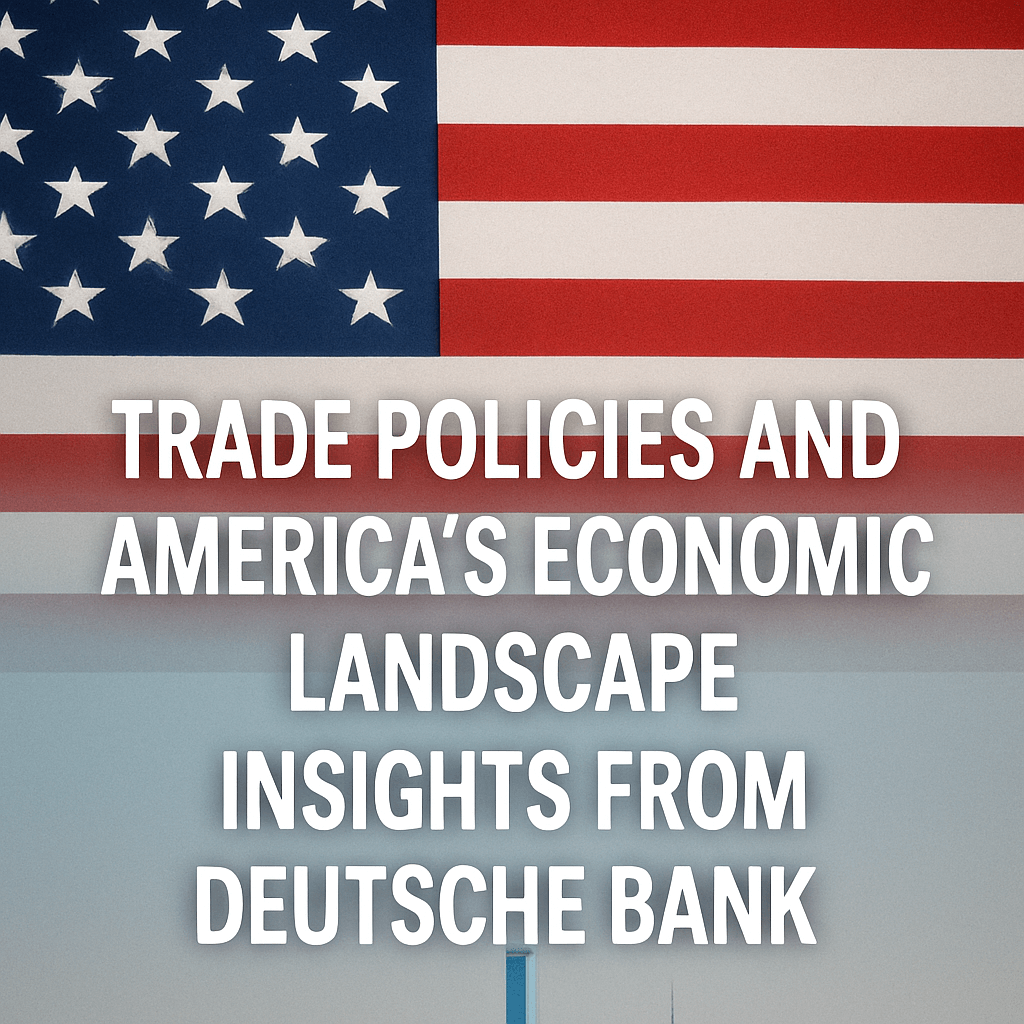Trade Policies and America’s Economic Landscape: Insights from Deutsche Bank

America’s prestigious economic exceptionalism, a term traditionally connoting strength derived from its size, stability, and global influence, stands at a precarious juncture, as outlined by analysts at Deutsche Bank. Their recent report scrutinizes how President Trump’s fluctuating trade policies have sowed volatility and ignited legal challenges, raising alarms over the potential erosion of America’s structural economic advantages.
The Bedrock of American Exceptionalism
For decades, the U.S. economy has been perceived as a stable bastion for global investors, due largely to its size and significant market mechanisms such as the role of the U.S. dollar as the world’s primary reserve currency. According to recent data from the International Monetary Fund (IMF), the dollar comprises approximately 60% of global reserves, underscoring its centrality in international finance.
However, Deutsche Bank’s economists, including Jim Reid, indicate that this once-solid foundation may be under threat. Reid states, “The structural foundations of U.S. exceptionalism—particularly the ability to finance itself cheaply via the dollar’s reserve status—have begun to erode.” This statement reflects growing concerns that prolonged economic pressures, paired with inconsistent trade policies, are indeed causing damage that may influence investor sentiment in the long term.
Recent Developments in Trade Policies
The past few months have featured a series of dramatic policy shifts from the Trump administration, particularly revolving around proposed tariffs on key trading partners. Initially, the president threatened tariffs on imports from Mexico, Canada, and China, leading to escalated tensions and discussions about economic sanctions aimed at curbing illegal immigration and drug trafficking. The tariffs that were applied had significant economic implications on sectors such as automotive and steel manufacturing.
- Initial Tariffs: In early April, President Trump implemented a broad 10% increase on imports, equating this to an act of “economic liberation” aimed at rebalancing trade.
- Response from China: These actions triggered immediate retaliatory measures from China, escalating to tariffs as high as 145% on U.S. exports, establishing a protracted trade war that rattled global markets.
- Legal Challenges: Recent legal hurdles have also emerged. A court recently ruled that the Liberation Day tariffs were unlawful, although this decision is currently under appeal, illustrating the tumultuous and unpredictable landscape of U.S. trade policy.
Investors’ Sentiment and Risk Premiums
Despite the upheaval, sentiments around U.S. investments remain strong among some sectors. As indicated by Macquarie Capital’s Viktor Shvets, the erosion of American exceptionalism feels more like a gradual process rather than an outright collapse. Shvets emphasizes, “This creates an environment conducive to a slow rise in U.S. risk premiums,” suggesting that differences in financing costs between U.S. and non-U.S. assets will narrow, potentially benefitting emerging market economies in Europe and Japan.
On the other hand, the general view remains cautious. Market analysts are acutely aware that while immediate risks may present opportunities for higher returns, they also necessitate careful navigation of the shifting economic waters. The uncertainty surrounding U.S. economic strategies and the resultant risk to investor confidence could have cascading effects on global investment norms.
Long-Term Implications: A Brand on the Line
Despite these challenges, it is worth noting the enduring dependency of global investors on U.S. policies and the American brand. Jamie Dimon, CEO of JPMorgan Chase, recently stated, “If you were to take all of your money and put it in one country, it would still be America,” pointing to the country’s resilience and potential for innovation.
Ken Griffin of Citadel offers a contrasting perspective, emphasizing the importance of the U.S. as a brand in global finance. He remarked, “The United States is more than just a nation—it’s a brand… and we’re eroding that brand right now.” This depiction posits that the perception of the U.S. as a stable investment destination is being jeopardized, which could complicate future financing endeavors.
Conclusion: Balancing Risks and Rewards
As the U.S. navigates its role in a shifting global landscape, the balance of risk versus reward remains a paramount consideration for investors. While confidence in America’s economic capacity persists, the question of sustainable exceptionalism lingers, demanding scrutiny and strategic planning. As the U.S. grapples with its economic policies, stakeholders will be closely monitoring these developments in order to recalibrate their investment strategies accordingly.
Author: Eleanor Pringle, Reporter at Fortune covering news, the economy, and personal finance.
Source: fortune